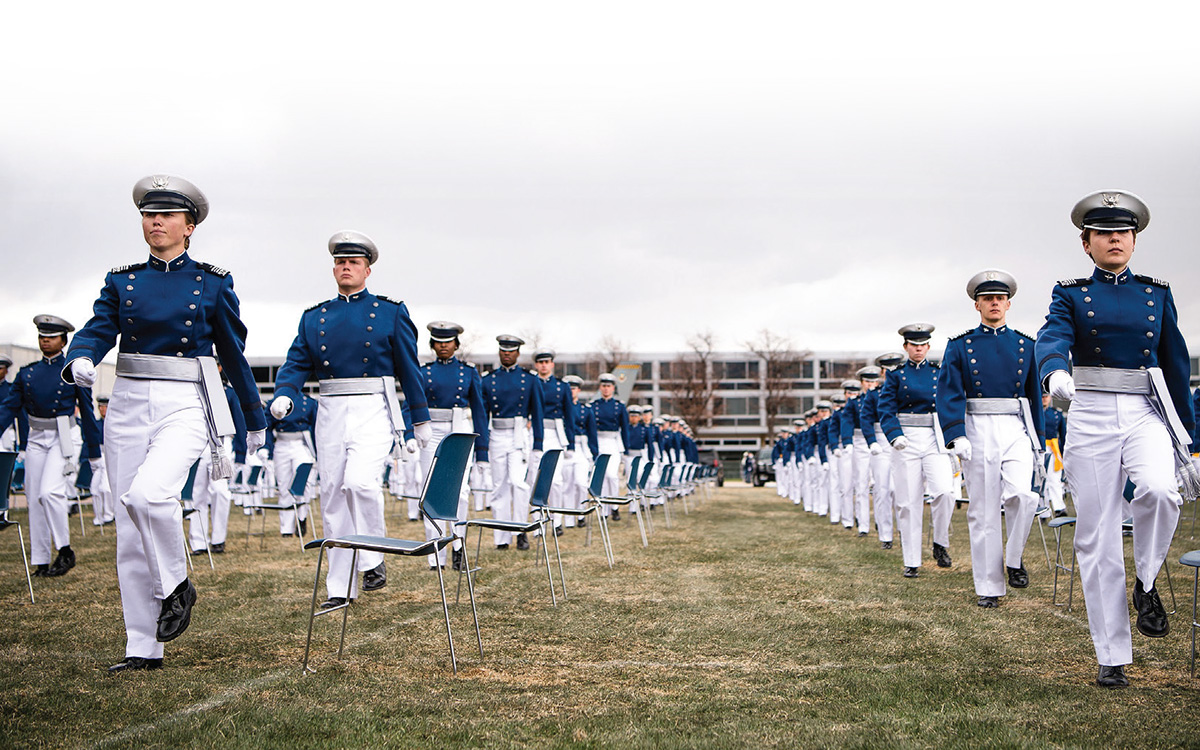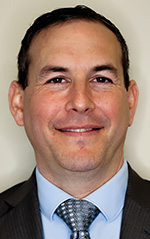Boosting Space Diplomacy at State
Though the Space Age is not new, space diplomacy remains an esoteric specialty at State. Here’s why it’s important to start changing this now.
BY DAVID A. EPSTEIN

istockphoto.com / 1xpert
With ever-increasing speed, humanity is expanding the scope of its activities in outer space, thanks to private enterprise as well as via national pursuits. In the last two years alone, for example, the number of active and defunct satellites in low Earth orbit has increased by more than 50 percent, to around 5,000, with plans to add tens of thousands more in the coming years. Equally surprising, these satellites are owned and operated by nearly 100 different countries and organizations around the world—not just the small but growing number of nations with domestic satellite launch capabilities—and involve a wide range of commercial, scientific and security and defense endeavors. Dangers lurk, however, and U.S. diplomacy must be prepared.
The United Nations took steps in December 2020 and November 2021 to reduce space threats and establish norms, rules and principles of responsible behavior in outer space. The importance of such efforts was demonstrated by Russia’s Nov. 15, 2021, anti-satellite missile test, which caused a massive and dangerous debris field that threatened space assets and forced astronauts and cosmonauts aboard the International Space Station to take refuge in emergency escape capsules.
The 2019 establishment of the U.S. Space Force is tangible recognition that humanity’s future lies among the stars, representing as it does an acute awareness that where human beings venture, conflict often follows. In January NATO released its formal space policy that recognizes space as a new operational domain, alongside air, land, sea and cyberspace. At the same time, much positive bilateral and multilateral work has occurred in space. From U.S.-Soviet space cooperation dating to the 1970s, to the International Space Station and now the Artemis lunar program, collaboration has proven more the rule than the exception.
It is imperative that the State Department, too, be in space. Today’s diplomats, not tomorrow’s, must develop a deep understanding of the interdisciplinary legal and policy aspects of outer space and a firm grasp of national priorities, interests, opportunities and policy constraints in space. State must invest in space as an increasingly vital element in all the various areas in which we work.
Everything from agriculture and the environment to commerce and defense will be influenced by humanity’s expansion into the cosmos. Space activities and operations may take place in their own separate domain for cooperation and for conflict, but satellites and other space assets will also serve as platforms that affect and are affected by terrestrial developments, as well. The Department of State and the Foreign Service are uniquely situated to help address the cross-cutting and interconnected nature of the opportunities and challenges of this activity.
DIPLOMACY IN THE SPACE AGE
Thus far, much of U.S. space policy and diplomacy is limited to a small cadre of subject matter experts. However, the positions dealing with space are few and far between and often represent a one-time career flourish. Quite simply, State does not have generalists who can engage on space regardless of posting and develop these skills over time.
Understanding space issues and opportunities begins with education, training and awareness raising. Our Department of Defense colleagues are preparing this generation of national defense professionals for careers involving space operations; the State Department must do the same. While on detail as Department of State Visiting Professor at the United States Air Force Academy, I had the honor and privilege of being part of a team to consider and devise curriculum for cadets graduating into the United States Space Force. As part of this effort, I directed and taught a course on space policy in the political science department. Alongside DoD, NASA, Commerce and other agencies, State will join interagency discussions and policymaking that will increasingly demand proficiency in the language of space.
Alongside DoD, NASA, Commerce and other agencies, State will join interagency discussions and policymaking that will increasingly demand proficiency in the language of space.
America’s diplomats must become fluent in this language like any other, though to varying degrees depending on the role space plays in individual portfolios. The Foreign Service Institute should consider a course—brief and online, at first—to introduce Foreign Service officers to space law, history and policy. Subsequently, FSI can develop a tiered approach, with topic-specific modules to prepare FSOs to integrate space into their work.
We must also become familiar with what our interagency colleagues are doing in space, along with allies and partners around the globe. While most people consider the European Space Agency or nations such as Russia, China and India, as “spacefaring nations,” few are aware, for example, that NASA engages with more than 100 countries conducting space exploration and research. We have professionals in embassies in each and every one of these countries working in areas that intersect with this international space cooperation. We need diplomats who can engage on space to build on this cooperation and expand its potential for bringing peace and prosperity. Unfortunately, we must also become better attuned to the actions of adversaries that utilize and exploit space to advance their interests at the expense of our own.
The Department of State must have professionals who understand the enduring interests, policies and procedures of the United Nations and NATO, as well as NASA and the Department of Defense, on space issues, but also those of commercial enterprises such as SpaceX, and the aspirations of allies, partners and adversaries around the globe.
The department and the Foreign Service cannot subcontract this knowledge to others within the interagency, the private sector or the international community; nor can we rely exclusively on a small corps of Civil Service colleagues. It is no exaggeration to say that, increasingly, such knowledge will be vital to our ability to do our jobs on behalf of the United States and for the peace and prosperity of planet Earth. Just as we have Foreign Service officers who develop expertise in human rights or energy policy, the State Department will require specialization in space as well as general, introductory exposure for all officers, no matter their cone or location.
Many Civil Service colleagues already possess impressive backgrounds and institutional knowledge regarding space, and the U.S. State Department has numerous talented professionals working on space-related matters at any one time. But such talent and resources need to be expanded and coordinated across the department because space increasingly affects all aspects of U.S. foreign policy and our collective work to advance America’s interests and values. A deliberate, organized approach to space at State will ensure that talent and experience are expanded, retained and applied where needed, and not lost or neglected throughout individual careers.
The synchronization of our space-related work will allow State to lead U.S. efforts with global allies and partners and to support other more targeted undertakings throughout the interagency, as well as within the scientific, commercial and academic realms.

On April 18, 2020, 967 U.S. Air Force Academy cadets became the Space Force’s newest second lieutenants. Here they are marching on to the terrazzo to start the USAF’s Class of 2020 Graduation Ceremony in Colorado Springs, Colorado.
U.S. Air Force / Trang Le
THE FUTURE IS NOW
Space already plays a critical role in so many aspects of life and so much of what we do as diplomats. The role it can play in aiding democracy protesters, for instance, to communicate via uncensored commercial satellite communication technology should be just as important to and just as well understood by human rights officers as it is to the interagency colleagues and the private sector firms seeking to protect those satellites from attack or disruption by malign actors. It seems self-evident that the State Department has a role to play in supporting and advancing these objectives.
Public affairs officers, too, must be able to tell the story of why outer space is important in what we do, and share that message alongside the other essential communication roles they perform. More broadly, cell phone communication, e-commerce and other aspects of our daily, digital lives rely on space and have interagency interests that intersect with nongovernmental equities as well.
Additionally, there are aspects of humanity’s future in space we have not yet considered nor fully addressed from a legal or policy standpoint that will depend on State’s interdisciplinary expertise and perspective to ensure U.S. interests and values are secured. Existing agreements such as the Outer Space Treaty contain significant gaps in coverage and ambiguities in verification that can lead to misunderstanding and conflict without constant awareness of developments in civil, commercial and military space capabilities. Alternatively, though, filling these gaps and clarifying such ambiguities can serve as a framework for communication and cooperation.
Additionally, there are aspects of humanity’s future in space we have not yet considered nor fully addressed from a legal or policy standpoint that will depend on State’s interdisciplinary expertise.
Unforeseen circumstances and scenarios, to say nothing of technologies, will require space expertise to craft the next generation of agreements, alliances and partnerships for and in space. Humanity’s future in space, in other words, presents the same challenges and opportunities for conflict or cooperation as in other domains, but the stakes will soon be far greater than ever before.
Future cooperation, and potential conflict in space, will not be limited to purely political or scientific realms but cover the full spectrum of human and international interests and disciplines. The United States Department of State and the Foreign Service represent the greatest combination of experience and expertise to help lead American and global efforts for a peaceful and bountiful future of extraterrestrial innovation and achievement.
LOOKING AHEAD
In time, various positions at our missions around the world should expand their portfolios to include space, depending on the contours and needs of the relationship. Environment, science, technology, and health (ESTH) and political-military (PolMil) officers seem a natural fit, but so too are public affairs officers. So many of us work in countries where space is or is becoming a part of the relationship with the United States that the variety of participants in such programs appears limitless. In the future, certain posts may require a dedicated space portfolio officer or even a unit or section within the mission. The Bureau of Global Talent Management’s Professional Development Unit may one day offer programs or other support that leads to an M.A. or LLM in space-based studies for officers demonstrating a dedication to space diplomacy.
The State Department is represented on the reestablished National Space Council and has a select number of positions dealing with space at multilateral missions. Foggy Bottom also has positions in the bureaus of Arms Control, Verification, and Compliance and Oceans and International Environmental and Scientific Affairs, among others, focused on space activities. Our Civil Service and Foreign Service colleagues in these positions have already made tremendous contributions to international treaties and agreements. It may be time, however, for more FSOs and members of the Civil Service to be aware of space and prepared for space-related policy decision-making. Satellite imagery will, for example, aid the work of State Department officials focused on alleviating humanitarian and refugee crises just as much as it serves officers engaged in energy and security issues.
Highlighting the importance of outer space in our future diplomacy may require a special envoy or ambassador-at-large or even a functional bureau down the line. For now, however, introducing space to as many members of the Civil Service and Foreign Service as possible would be a tremendous beginning.
State will be needed in space. Now is the time to prepare.
Read More...
- “The United Nations Could Finally Create New Rules for Space,” by Ramin Skibba, Wired, November 3, 2021
- “Key Topics,” U.S. Department of State Office of Space Affairs
- “Interstellar Negotiation,” by Michael A.G. Michaud, FSJ, December 1972




